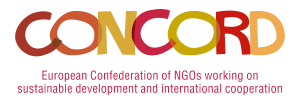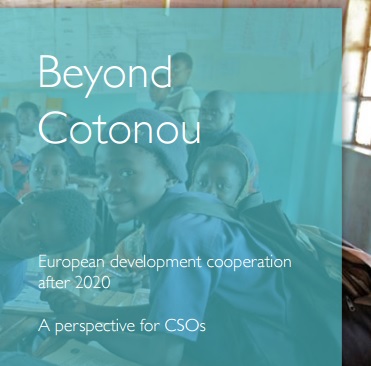What is the Cotonou Partnership Agreement?
Cotonou Partnership Agreement is a comprehensive agreement between the EU and the African, Caribbean and Pacific (ACP) countries. It was signed in Cotonou, on 23 June 2000.
The Cotonou Partnership Agreement is based on three complementary pillars: development cooperation, economic and trade cooperation, and the political dimension.
The agreement expired in 2020 and the formal negotiations between the governments started in September 2018. These EU-ACP relations are reviewed in the “post-Cotonou” process .
What is the Post-Cotonou Agreement and how does it link to the Cotonou Agreement?
The new partnership agreement between the European Union and the members of the Organisation of African, Caribbean and Pacific States (OACPS, formerly known as the ACP Group of States) marks the formal conclusion of their negotiations of the Post-Cotonou Agreement, and sets the framework for political, economic and sectoral cooperation for the next twenty years.
The negotiated version of the Agreement was published by the European Commission on 15 April 2021, and is expected to be signed in the second half of 2021.
This Post-Cotonou Agreement will supersede the current Cotonou Partnership Agreement, a comprehensive, legally binding framework for relations between the countries in Africa, the Caribbean and the Pacific (ACP) and the EU.
JAES Seminar on mechanisms for CSO participation in post-Cotonou
17 July 2019
CONCORD, together with its partners from the JAES Civil Society Steering Committe (coming both from Europe and Africa) held a seminar to discuss effective mechanisms for Civil Society space in the future EU-Africa pillar of post-Cotonou. Several stakeholders from the EC post-Cotonou task force participated.

CONCORD briefings on the EU-Africa pillar
14 June 2019
CONCORD presents four new briefings on the EU-Africa pillar of the ongoing post-Cotonou negotiations. The topics covered are migration and mobility, mechanism for Civil Society, inclusive sustainable economic development, and human development and dignity.

Briefing on Economic Development
The EU-ACP Consultation on the African Pillar
2-3 May 2019
The EC and the ACP African leaders met in Eswatini to discuss needs and priorities of the future EU-African pillar in the post-Cotonou framework.

European Commission Press Release
The EU-ACP Consultation on the Caribbean Pillar
15 April 2019
The EC and the ACP Caribbean leaders met in Jamaica to exchange views on the priorities of the future EU-Caribbean pillar in the post-Cotonou framework.

European Commission Press Release
Meeting of the EU-ACP Chief Negotiators
4 April 2019
The two chief negotiators met in N’djamena, Chad, to take stock of the process. Although the two parties have not reached an agreement on all the sections of the common Foundation, they decided to trigger the talks on the regional pillars (EU-Africa, EU-Caribbean, EU-Pacific)

European Commission Press Release
The EU-ACP Consultation on the Pacific Regional Pillar
26 February 2019
The EC and the ACP Pacific leaders met in Samoa to exchange views on the priorities of the future EU-Pacific pillar in the post-Cotonou framework. The contribution of Pacific CSOs was vibrant and, on that occasion, they adopted a strong position on civil society participation for the fight against climate change.

CONCORD’s vision for the future EU-ACP partnership agreement
January 2019
CONCORD adopted the paper “CONCORD’s vision for the future EU-ACP partnership agreement: putting sustainable development and human rights at the centre”: the document examines and addresses the “6 Strategic Priorities” of the foundation in the future EU-ACP agreement. It follows the EU’s mandate structure, but puts forward clear recommendations based on Civil Society’s views on the future post-Cotonou agreement.

CONCORD’s recommendations (EN)
Recommandations de CONCORD (FR)
CONCORD panel discussion on EU-ACP negotiations
17 December 2018
Civil Society from ACP countries and the EU will actively monitor the new Cotonou Partnership Agreement. In this regard, CONCORD organized a panel discussion on the ongoing ACP-EU negotiations where the relevant stakeholders of the process will gather and will share their views on several issues.

Meeting of the EU and ACP chief negotiators
14 December
The two chief negotiators, the EU Commissioner for Development and International Cooperation Mimica for the EU and the Minister of Foreign Affairs of Togo Dussey for the ACP Group, met in Brussels for the first time after the launch of the negotiations to take stock of the process.

CONCORD exchange with the Commission on post-Cotonou prospects
9 October 2018
Mr. Doens, Head of European Commission post-Cotonou task force, exchanged on the state of play and prospects of the post-Cotonou negotiations. The event, organised by CONCORD, aimed to examine which will be the course of the negotiations and which will be the space and opportunities for CSOs throughout the process.

CONCORD recommendations for CS participation in the future EU-ACP relations
April 2018
CONCORD puts forward a list of recommendations aiming at shedding light on which would be the most effective and meaningful mechanisms and elements to include and defend Civil Society role and space in the post-2020 EU-ACP agreement.

CONCORD’s recommendations (EN)
Recommandations de CONCORD (FR)
Aid & Migration: externalisation of Europe’s responsibilities
March 2018
CONCORD’s report on aid and migration aims at clarifying how EU’s development cooperation and migration agendas are interlinked in today’s EU policies. The report draws a couple of key recommendations, and more specifically, identifies 3 trends outlining how EU aid is in fact used to curb migration, done on-purpose by EU policy-makers to serve domestic priorities
![]()
Analysis on promotion of civic space
March 2018
CONCORD did an analysis on the promotion of civic space and enabling environment in EU external action.
This paper examines civil society at the heart of democracy and sustainable development and looks at the key components of civic space which are necessary to enable an environment where civil society can peruse and express basic rights. Civil society organisations can play an important facilitating role to make the voices of people audible. This paper targets civil society as well as EU institutions and Member States by building some relevant recommendations.

European Commission’s communication
December 2017
The European Commission prepared recommendations for a Council Decision on the negotiation mandate. The Council decision was authorising the opening of the negotiations on a Partnership Agreement between the European Union and countries of the African, Caribbean and Pacific Group of States.

The Commission’s recommendations
Joint Parliamentary Assembly in Malta
19 to 21 June 2017
In June 2017, CONCORD prepared several briefing papers aiming to provide EU NGDOs’ views on some specific aspects of the future EU-ACP partnership. Among these, we invite you to read the analysis of the EC communication on the partnership, our papers on the future of the institutional set-up, the development cooperation and global challenges, the private sector and trade, and on the paper on the role of civil society. These papers were presented at the Joint Parliamentary Assembly (JPA) in Malta.

This event gathered members of the Parliaments from Africa, the Caribbean and the Pacific (ACP) and members of the European Parliament. MEPs discussed sport, development aid, famine and security issues in Sahel regions.
CONCORD event on post-Cotonou
6-7 December 2016
This two-day event, co-hosted by CONCORD and the Slovak Presidency in collaboration with the International Forum of National NGO Platforms (IFP), was a dialogue on the EU’s partnership with African, Caribbean and Pacific (ACP) states after 2020.

Part of this event, a moderated debate, brought together authorities and Civil Society Organisations from both the EU and the ACP, to discuss their future partnership after 2020. The main outcome was the joint ACP-EU civil society statement.
Outcomes of the post-Cotonou event
European Commission’s communication
22 November 2016
European Commission released A Joint Communication “Towards a renewed partnership with African, Caribbean and Pacific (ACP) countries after 2020” which builds on:
- UN 2030 Agenda
- Global Strategy for the EU’s Foreign and Security Policy
- Coherence with the European Consensus on Development

CONCORD’s Position
April 2016
In 2015 CONCORD organized several exchange of views on the post-Cotonou process and responded to the joint consultation issued by the European Commission and EEAS. As a follow up in April 2016, CONCORD summarized its views by developing a short position paper. These positions will be further discussed with ACP civil society organisations during an internal CSO seminar preceding the debate with ACP and EU authorities on 7 December.

Revisions of the agreement
2010
Since 2000, ACP-EU cooperation has been revised in order to adapt to new challenges such as climate change, food security, regional integration, State fragility and aid effectiveness.
The revision in 2010 was preceded by a previous revision in 2005, in accordance with the revision clause to re-examine the Agreement every five years.
More info on the 2010 revision
More info on the 2005 revision
Pre-Cotonou
1957-2000
ACP-EU cooperation dates back to the birth of the European Treaty of Rome establishing the European Economic Community in 1957, which expressed solidarity with the colonies and overseas countries and territories and a commitment to contribute to their prosperity.
The first formal association agreements were Yaoundé I and II in the 1960’s, followed by the Lomé Conventions (I-IV), covering the period 1975–2000 and aiming to support the ACP States’ efforts to move towards self-sustained development.
[/svtimeline]








You must be logged in to post a comment.